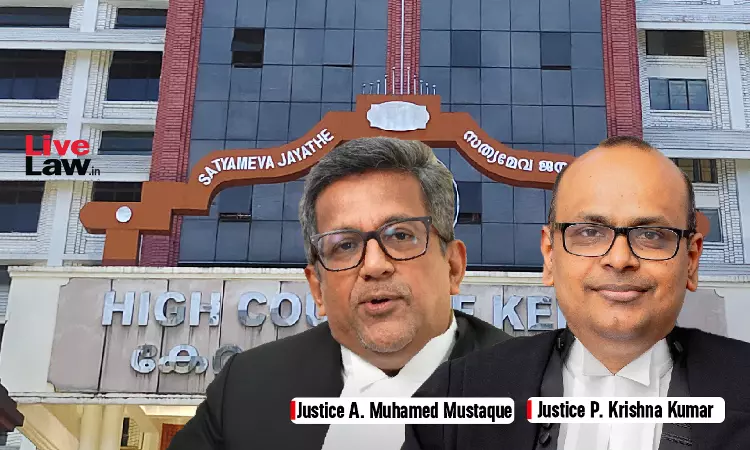- Home
- /
- High Courts
- /
- Kerala High Court
- /
- Govt Must Be Able To Determine...
Govt Must Be Able To Determine Strength Of Local Bodies In Interest Of Effective Governance: Kerala HC Affirms State's Delimitation Exercise
Manju Elsa Isac
25 Feb 2025 6:52 PM IST
The Kerala High Court on Monday (24th February) overturned the decision of a Single Bench invalidating the delimitation exercise for 8 municipalities and one panchayat.Background of the CaseThe Kerala Government by virtue of Kerala Municipality (Second Amendment) Act, 2024 and Kerala Panchayat Raj (Second Amendment) Act, 2024 increased the ratio of number of counsellors/ panchayat members to...
The Kerala High Court on Monday (24th February) overturned the decision of a Single Bench invalidating the delimitation exercise for 8 municipalities and one panchayat.
Background of the Case
The Kerala Government by virtue of Kerala Municipality (Second Amendment) Act, 2024 and Kerala Panchayat Raj (Second Amendment) Act, 2024 increased the ratio of number of counsellors/ panchayat members to the population in the area.
Pursuant to this amendment, government issued notification increasing the number of wards in the Panchayats and Municipalities. Consequently, Kerala Delimitation Commission issued notification to start delimitation process in these local bodies to correspond to the change in number of wards.
The notification further directed that delimitation has to done in area even where there was no change in ward number according to the population in the area.
The State Government submitted that there was a significant increase in population since the last census in 2011 and the amendment was made in the Acts to reflect that increase in population.
This order was challenged by certain Municipalities and Panchayats saying that they had already undergone a delimitation exercise since the publication of the 2011 census.
The Single Bench held that delimitation exercise in these local bodies cannot be done based on previously used data.
The Court had said that once the Government has formed/ re-constituted a local body and the number of seats has been notified under Section 6(1) of the Municipality Act 1994/ Panchayat Raj Act, 1994, it can be varied only as per Section 6(2) of the Act. Section 6(2) says that the number of seats can be varied after publication of each census.
The Court interpreted that this would mean that outdated or previously used data cannot be used for varying the seats of the Panchayat/ Municipality.
Against this judgment, appeals were filed.
Observations of the Court
The Division Bench comprising of Justice A. Muhamed Mustaque and Justice P. Krishna Kumar held that even after an initial determination of seats under Section 6(1) of the Acts, there is no restriction on the Government to exercise its power under Section 6(1) to alter the number of seats as long as the alteration remains within the limits prescribed under Section 6(3).
The Court also added that the Government can utilise once used census data to alter the strength of the councillors under Section 6(1) as along as it is within the maximum number given under Section 6(3).
The Court said that by reading of Sections 6(1) and Section 6(2) in conjunction, the Government can initially determine the strength of a local body under Section 6(1) on the basis of an existing census and Section 6(2) provides for alterations on this based on a new census.
The Court added that Section 6(2) does not restrict the Government's ability to redetermine the number of seats under Section 6(1) without relying on fresh census data.
The Court said that not permitting redetermination under Section 6(1) would impose an undue restriction on Government's discretion in fixing the strength of Councillors following the population ratio.
The Court also observed that this approach is necessary for the effective functioning of the local bodies.
“If this approach is not followed, the functioning of local bodies could be significantly disrupted, as the Government would have to await a fresh census before making adjustments. Such a requirement is neither envisaged by constitutional provisions nor by statutory law. The Government must be able to determine the strength of the local bodies in the interest of effective governance, taking into account factors such as resource allocation, revenue generation and administrative efficiency. As long as these decisions adhere to statutory provisions, the Court should not interfere with the Government's exercise of power in this regard.”
The Court also held that it cannot review the amendment made by the State legislature to Section 6(3) effectively increasing the ratio of Councillors to the population as it is barred by Article 243-O of the Constitution. Article 243 O among other things bars judicial review of laws relating to delimitation of constituencies.
The Court said that delimitation exercise has to be done subsequent to the increase in strength of the councillors and therefore the Court cannot entertain a challenge to amendment made to Section 6(3).
The Court further observed that amending Section 6(3) is within the competence of State legislature and it does not violate the fundamental rights of the writ petitioners nor is there any manifest arbitrariness in the process. The Court said that for these reasons, it cannot entertain the challenge against amendment made to Section 6(3).
Case No: WA 202 of 2025 & Connected cases
Case Title: State of Kerala v Abdul Gafoor and Others & Connected Cases
Citation: 2025 LiveLaw (Ker) 138
Click Here To Read/ Download Order



